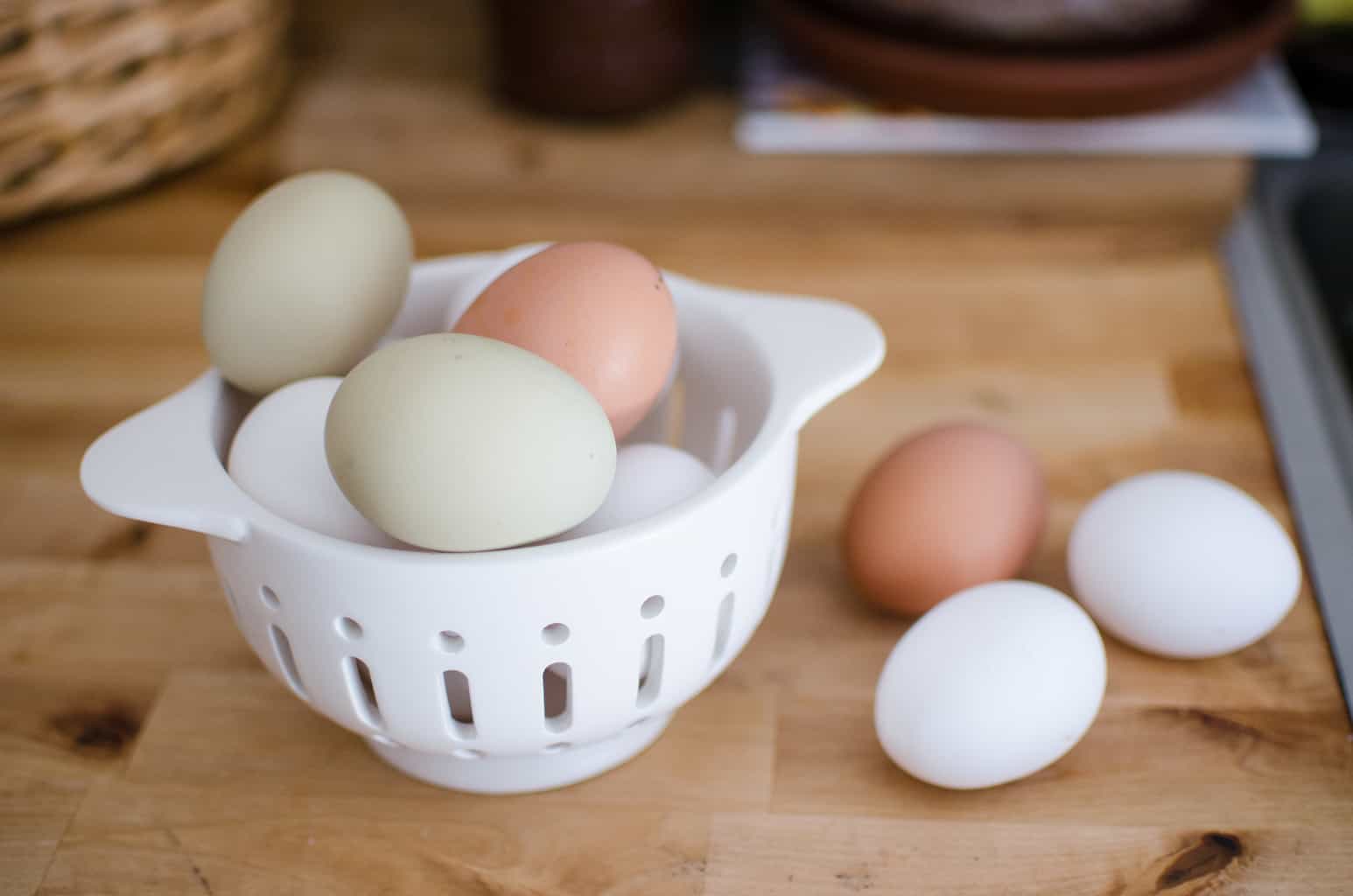
It’s that time of year when every chicken in your flock is laying an egg. Some days you can’t use them up fast enough, so the question may arise —how do I preserve chicken eggs?
Chicken eggs are extremely easy to store and preserve. You can simply collect your eggs and store them at room temperature on the counter, in the refrigerator, or in a root cellar. Storing in the refrigerator or a cool root cellar will prolong the shelf life of the eggs (up to 4+ weeks), otherwise, eggs can be stored at room temperature safely for about two weeks. They can then be moved to a cooled or refrigerated area for several more weeks before throwing out.
Whichever way you decide to store your eggs, remember not to wash them. Washing them removes the protective bloom from the outside of the egg. Not only that, washing them can cause bacteria and other bad things to leech in through the egg shell (like salmonella), crippling the freshness and safety of your farm fresh egg.
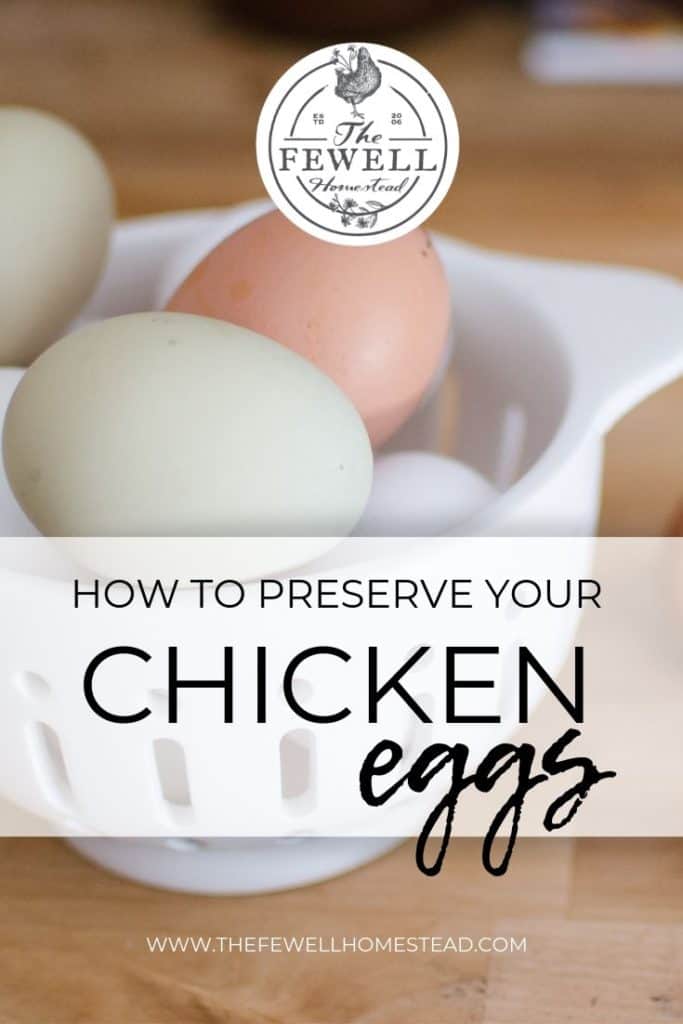
Ways to Preserve Chicken Eggs
You’ll hear and read of a lot of different ways to preserve chicken eggs, but let’s go over just a few of the most simple ways.
Freeze Your Eggs
This is the most common way to preserve your chicken eggs. Simply crack your eggs open into a bowl, whisk together, and place the eggs into silicone ice cube trays. Freeze until solid, then pop them out and put them into a freezer bag for later storage.
Water Glass Your Eggs
Also known as liquid sodium silicate, this technique (known as “water glassing”) has been used since the 1800s. You should only use fresh, clean eggs without any dirt, mud, or debris. Refer to the National Center for Home Food Preservation website for more information.
Here’s an excerpt taken from The Boston Cooking-School Cook Book by Fannie Farmer, written in 1896:
Only use fresh eggs which have been wiped clean, but not washed. Mix eleven parts water with one part water glass in an earthenware crock. Place eggs in solution leaving about two inches of liquid above the eggs. One quart of water glass will treat about 16 dozen eggs.
OR
Mix one part water glass with ten parts cooled, boiled water and pour into a large, stone crock. Wipe off fresh eggs with a flannel cloth and place in solution (eggs should be covered with 2″). Cover crock and store in a cool, dry place.
IMPORTANT: Water glass should be handled with care and kept out of the reach of children!
Freeze Dry Your Eggs
This method is probably one of the best methods to preserve by, and your eggs will be preserved for at least ten years. Your eggs can be stored in mylar bags or air sealed containers until ready to be rehydrated. Following the manufacturer’s instructions on your freeze dryer to preserve.
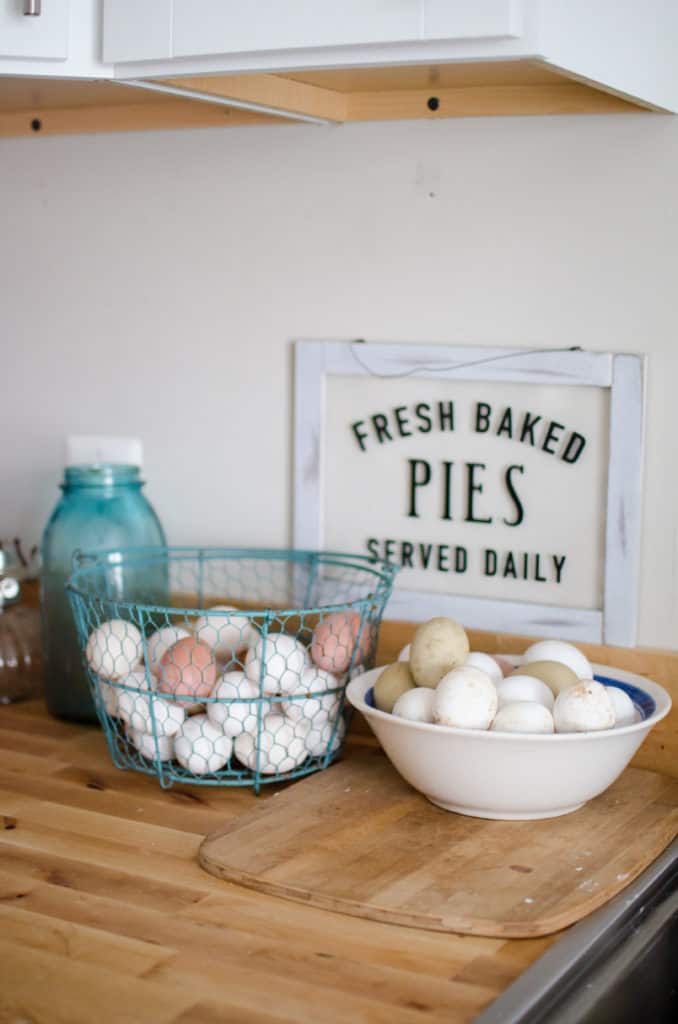
Why Should I Preserve Eggs?
We’re talking about egg preservation, but why is it so important? Don’t chickens lay eggs everyday? The truth is, chickens only lay through the sunniest parts of the year—late winter through autumn. About three months out of the year (sometimes more) their egg production decreases or becomes non-existent. Preserving your eggs at peak season will come in handy when you need them!
There are other time-tested egg preservation methods, but these are the most natural ways to preserve your eggs so that it remains safe and natural for your family.
In the links below, you might find a few more ways to preserve or use up all of those extra eggs! Enjoy!
Other posts you might like:
50+ Ways to Use Extra Eggs
Do You have to Refrigerate Eggs?
5 Ways to Preserve Eggs
How to Make a Farm Fresh Frittata




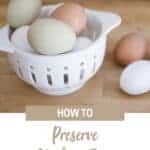







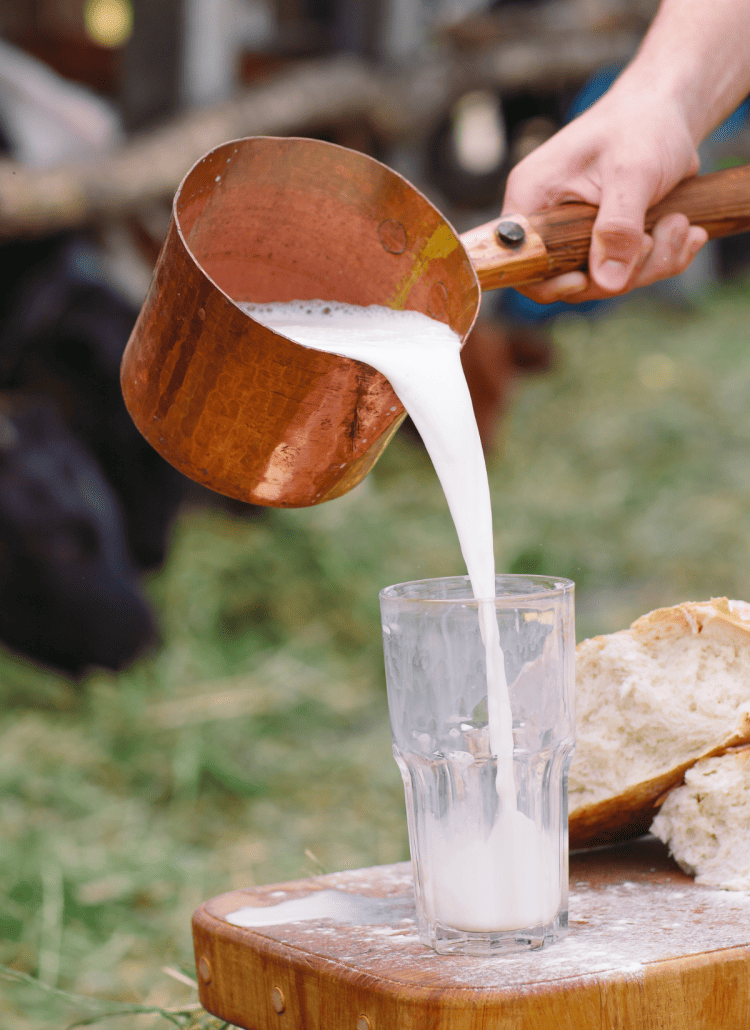
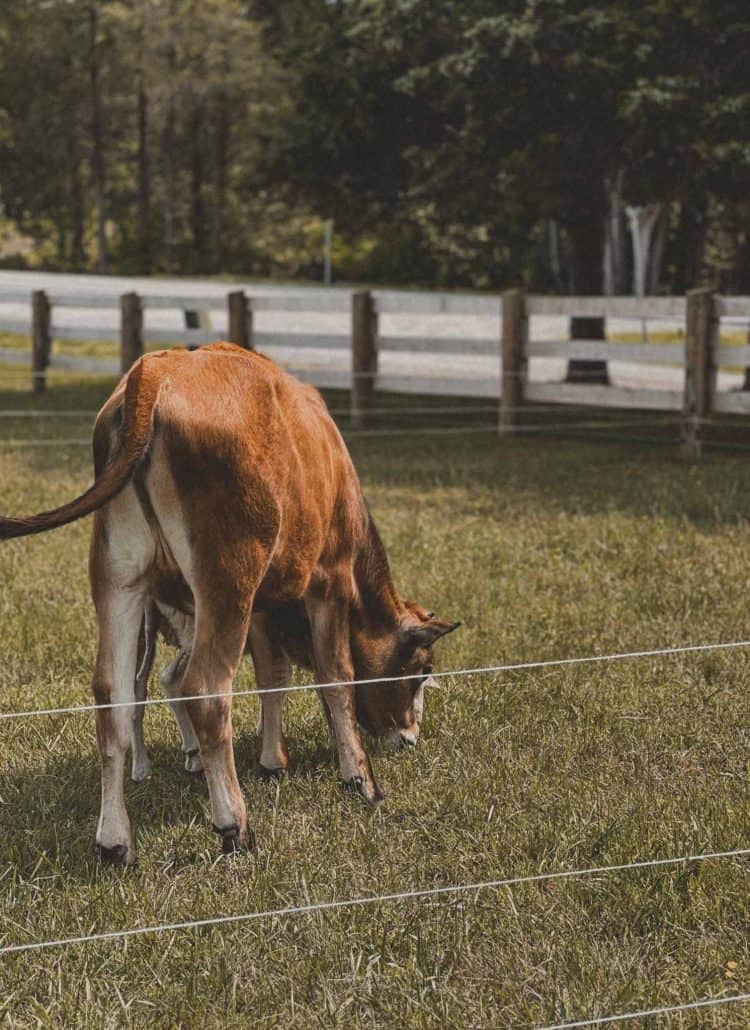

Leave a Reply